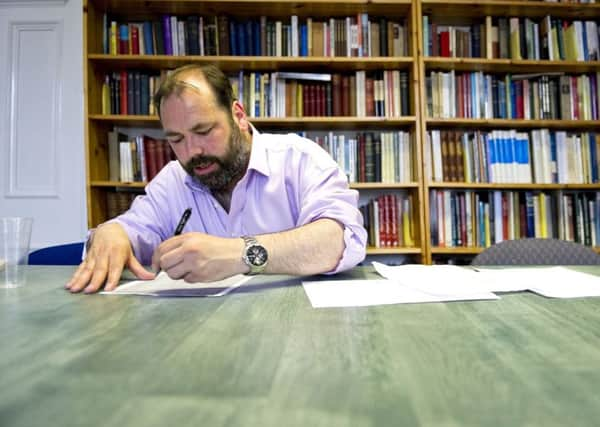Robert Burns' politics were '˜open secret' to civil service


Professor Gerard Carruthers said that Burns’ politics were an “open secret” in the civil service, and dispelled the longstanding notion that the poet’s voice was silenced through his employment with the state.
In a talk focusing on Burns’ role as an exciseman in Dumfries, Mr Carruthers will argue tomorrow that far from discouraging the bard’s political outlook, many of his colleagues agreed with it.
Advertisement
Hide AdMr Carruthers, the Francis Hutcheson Professor of Scottish Literature and co-director of the Centre for Robert Burns Studies at the University of Glasgow, said recently unveiled letters by Burns’ contemporaries ought to put paid to the “conspiracy theories” about his brief career as an exciseman.
He explained: “There are lots of near-conspiracy theories through two centuries that have sought to account for Burns’ career in the excise service. The common idea in these theories is that the government had Burns where they wanted him: under their control and politically silenced.
“In fact as the new letters, by contemporaries of Burns, show, he was delighted and not reluctant to be given his position. The new material reveals that Burns’ progressive political views were an ‘open secret’ in the civil service.”
He added: “Indeed, some of those intelligent and educated colleagues with whom he worked shared his views.“
The two letters studied by Mr Carruthers were written by John Mitchell, the bard’s excise boss, to one of the poet’s patrons, Robert Graham of Fintry, a commissioner of the Scottish Board of Excise, who helped to secure Burns – a staunch opponent of monarchy and slavery – his job in the summer of 1788. At one point, the former ploughman was earning £50 a year, around twice the average salary.